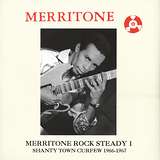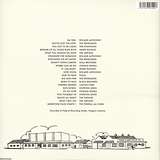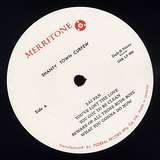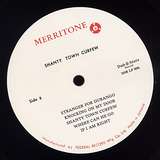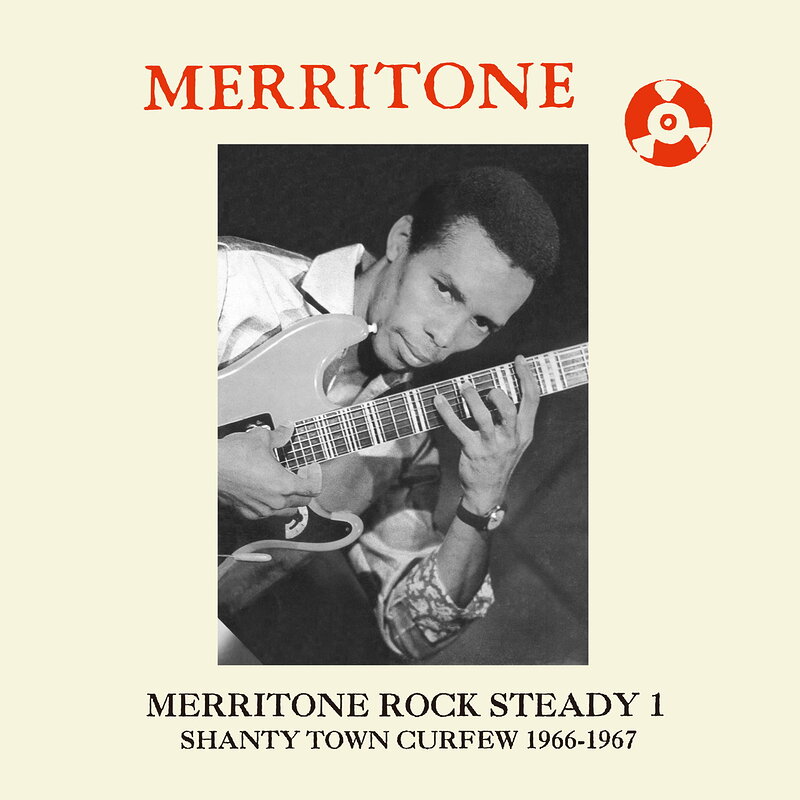Various Artists: Merritone Rock Steady 1: Shanty Town Curfew 1966-1967
’The birth of rock steady portrayed in a consummate collection from the vaults of Federal Records’
- A1 Roland Alphonso: Sai Pan
- A2 The Renegades: You've Lost the Love
- A3 The Ethiopians: You Got to Be Clean
- A4 Henry Buckley: Beware of All Those Rude Boys
- A5 The Tartans: What You Gonna Do Now
- B1 Roland Alphonso: Stranger for Durango
- B2 The Renegades: Knocking on My Door
- B3 Soul Brothers: Shanty Town Curfew
- B4 Oswald Sewell: Where Can He Go
- B5 Henry Buckley: If I Am Right
- C1 Roland Alphonso: How Soon
- C2 Pulus: Sow to Reap
- C3 The Renegades: Big and Fine
- C4 Black Brothers: Born to Rule
- C5 Laxton Ford: Finders Keepers
- D1 Hopeton Lewis: Run Down
- D2 Oswald Sewell: Oh My Love
- D3 Hopeton Lewis: Pick Yourself Up
- D4 The Tartans: Dance All Night
- D5 The Tartans: What Can I Do
- D6 The Federal All Stars: Merritone False Starts 1
‘Ken Khouri's Federal Records gave Jamaica its musical identity
The Federal Record Manufacturing facility was the first pressing plant in Jamaica... their studio gave birth to mento, ska, rock steady and reggae of the highest calibre. This album features an astonishing selection of well known classics and rarities which majority of them transferred straight from their master tape
American rhythm & blues fervour, boosted by a multitude of sound systems playing 78rpm records on increasingly larger sets, gripped Jamaica from the late forties onwards but, towards the end of the decade, the American audience began to move towards a somewhat softer sound. The driving rhythm & blues discs became increasingly hard to find and the more progressive Jamaican sound system operators, realising that they now needed to make their own music, turned to Kingston's jazz and big band musicians to record one off custom cut discs. These were not initially intended for commercial release but designed solely for sound system play on acetate or 'dub plates' as they would later be termed. These 'specials' soon began to eclipse the popularity of American rhythm & blues and the demand for their locally produced music proved so great that the sound system operators began to release their music commercially on vinyl and became record producers. Clement Coxsone' Dodd, Duke Reid 'The Trojan' and Prince Buster, who operated his Voice Of The People Sound System, were among the first to establish themselves in this new role and the nascent Jamaican recording industry now went into overdrive.
In 1954 Ken Khouri had numbered among the first far sighted entrepreneurs to produce mento records with local musicians (mento is Jamaica's original indigenous music) before progressing to opening Jamaica's first record manufacturing plant. Three years later he moved his operation to Foreshore Road (later renamed Marcus Garvey Drive) where, with the assistance of the inestimable Graeme Goodall, he updated and upgraded his recording studio. The importance of this enterprising move was critical to the development of Jamaican music and its influence both profound and far reaching.’
Various Artists: Merritone Rock Steady 1: Shanty Town Curfew 1966-1967
’The birth of rock steady portrayed in a consummate collection from the vaults of Federal Records’
‘Ken Khouri's Federal Records gave Jamaica its musical identity
The Federal Record Manufacturing facility was the first pressing plant in Jamaica... their studio gave birth to mento, ska, rock steady and reggae of the highest calibre. This album features an astonishing selection of well known classics and rarities which majority of them transferred straight from their master tape
American rhythm & blues fervour, boosted by a multitude of sound systems playing 78rpm records on increasingly larger sets, gripped Jamaica from the late forties onwards but, towards the end of the decade, the American audience began to move towards a somewhat softer sound. The driving rhythm & blues discs became increasingly hard to find and the more progressive Jamaican sound system operators, realising that they now needed to make their own music, turned to Kingston's jazz and big band musicians to record one off custom cut discs. These were not initially intended for commercial release but designed solely for sound system play on acetate or 'dub plates' as they would later be termed. These 'specials' soon began to eclipse the popularity of American rhythm & blues and the demand for their locally produced music proved so great that the sound system operators began to release their music commercially on vinyl and became record producers. Clement Coxsone' Dodd, Duke Reid 'The Trojan' and Prince Buster, who operated his Voice Of The People Sound System, were among the first to establish themselves in this new role and the nascent Jamaican recording industry now went into overdrive.
In 1954 Ken Khouri had numbered among the first far sighted entrepreneurs to produce mento records with local musicians (mento is Jamaica's original indigenous music) before progressing to opening Jamaica's first record manufacturing plant. Three years later he moved his operation to Foreshore Road (later renamed Marcus Garvey Drive) where, with the assistance of the inestimable Graeme Goodall, he updated and upgraded his recording studio. The importance of this enterprising move was critical to the development of Jamaican music and its influence both profound and far reaching.’
